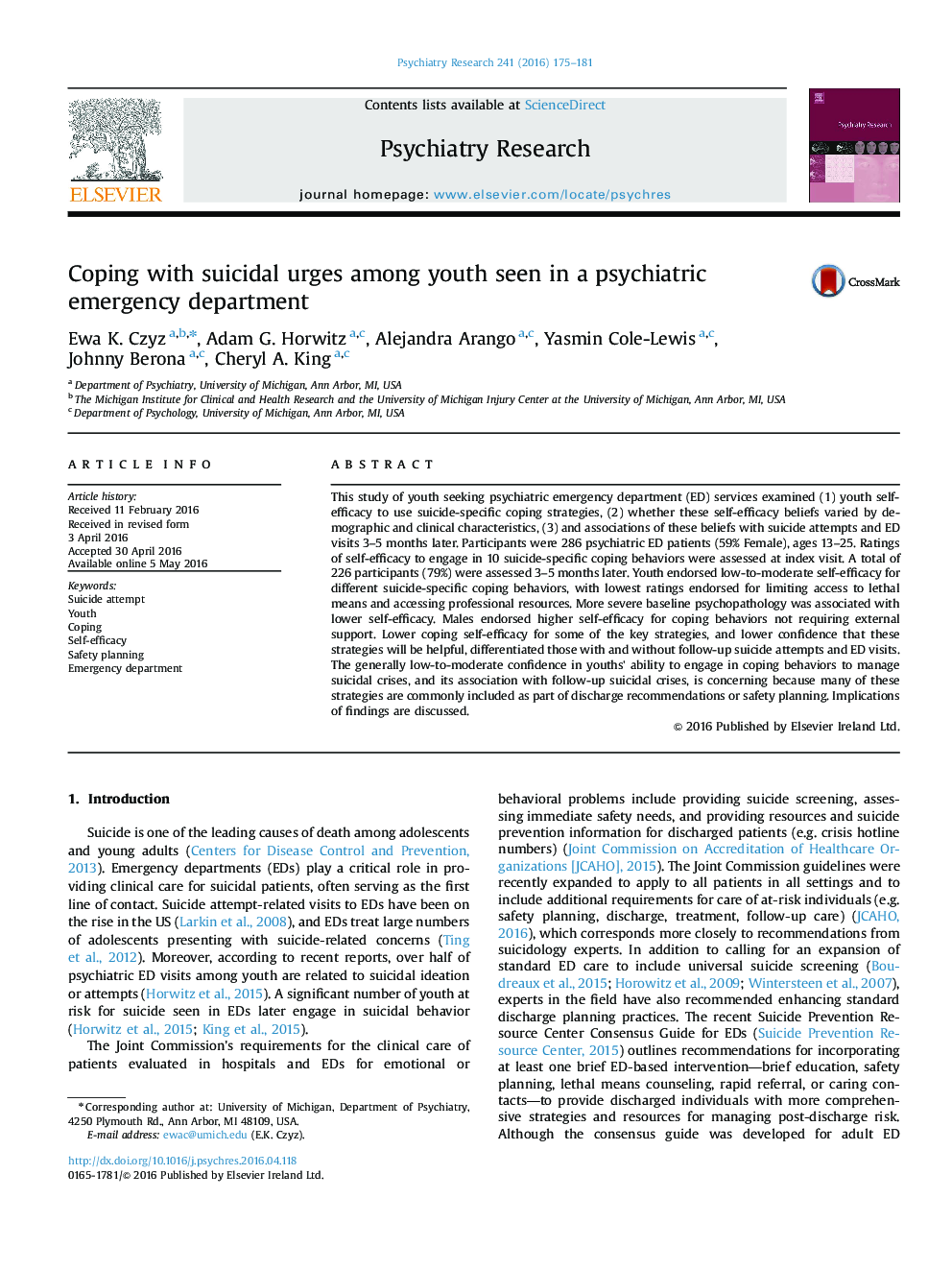| Article ID | Journal | Published Year | Pages | File Type |
|---|---|---|---|---|
| 6813096 | Psychiatry Research | 2016 | 7 Pages |
Abstract
This study of youth seeking psychiatric emergency department (ED) services examined (1) youth self-efficacy to use suicide-specific coping strategies, (2) whether these self-efficacy beliefs varied by demographic and clinical characteristics, (3) and associations of these beliefs with suicide attempts and ED visits 3-5 months later. Participants were 286 psychiatric ED patients (59% Female), ages 13-25. Ratings of self-efficacy to engage in 10 suicide-specific coping behaviors were assessed at index visit. A total of 226 participants (79%) were assessed 3-5 months later. Youth endorsed low-to-moderate self-efficacy for different suicide-specific coping behaviors, with lowest ratings endorsed for limiting access to lethal means and accessing professional resources. More severe baseline psychopathology was associated with lower self-efficacy. Males endorsed higher self-efficacy for coping behaviors not requiring external support. Lower coping self-efficacy for some of the key strategies, and lower confidence that these strategies will be helpful, differentiated those with and without follow-up suicide attempts and ED visits. The generally low-to-moderate confidence in youths' ability to engage in coping behaviors to manage suicidal crises, and its association with follow-up suicidal crises, is concerning because many of these strategies are commonly included as part of discharge recommendations or safety planning. Implications of findings are discussed.
Related Topics
Life Sciences
Neuroscience
Biological Psychiatry
Authors
Ewa K. Czyz, Adam G. Horwitz, Alejandra Arango, Yasmin Cole-Lewis, Johnny Berona, Cheryl A. King,
